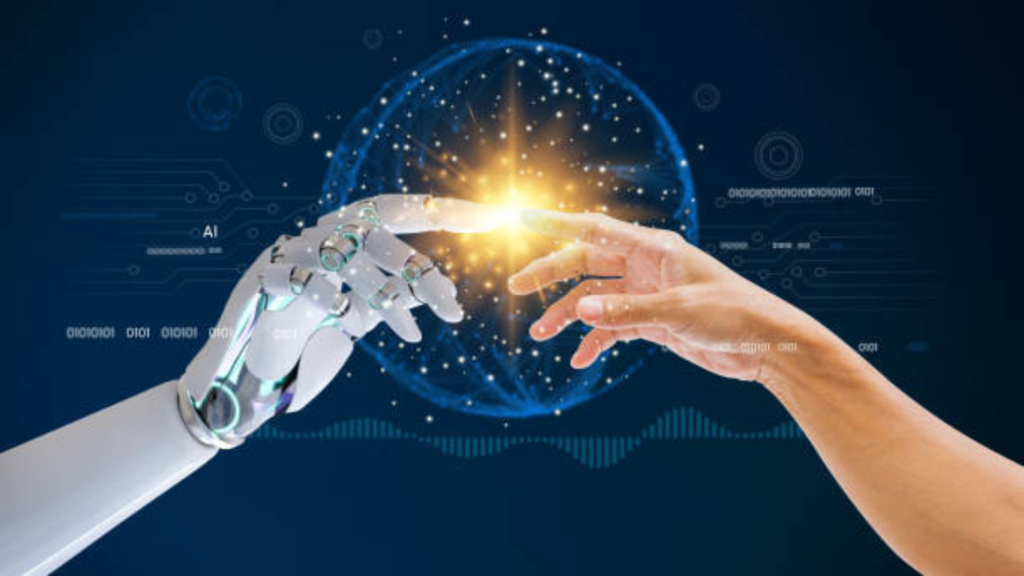In today’s world, Artificial Intelligence plays a crucial role in the education sector, helping to develop advanced learning programs. These programs enable students to explore new and creative ideas, gaining unique knowledge that enhances their educational journeys. AI introduces innovative learning methods and is primarily utilized in education to teach students while assisting teachers in improving their skills.
We discuss this topic to understand how AI is reshaping the education landscape and the key points to consider. AI serves as a tool that operates based on coding and prompts. At the start of 2024, the ChatGPT model was launched online. ChatGPT functions as a bot that responds to your prompts, providing answers within seconds.
AI’s Transformation in Education
We are examining the transformation of AI in the education sector to identify changes and tools that can facilitate significant improvements. For students, AI presents new opportunities across various fields, helping to identify coding challenges and apply solutions in technical industries. With AI’s support, educational institutions can assess their performance and set new goals for achieving greater success. Chatbots can deliver valuable insights for your institution; for example, you might prompt ChatGPT with, “I want to enhance my institution’s performance and increase the admission rate. What should I do?” This is a prompt, and you can see how ChatGPT responds.
Read: Ultimate Guide for Qatar Jobs for Pakistanis | Visa & Passport Details
Implement the insights from the ChatGPT prompt in real life and develop a plan to achieve better results than before. AI addresses teachers’ challenges and even enables robots to teach students more effectively than traditional methods.
Artificial Intelligence Support to Students

AI has become a valuable resource for students tackling challenging programming tasks. For example, if you’re coding and encounter issues that prevent your script from running correctly, an AI chatbot can assist by identifying errors and providing detailed solutions.
Additionally, the chatbot can generate entire code snippets for you, especially if you’re creating something for the first time. If you’re looking to develop a calculator app, simply provide the chatbot with the features you want to include, and it will help you with the necessary code to implement in your project.
How AI is Supportive for Teachers?
AI has become an integral part of the educational landscape, with many educators relying on it to enhance their work. There are various AI tools specifically designed for teachers and educational purposes. Here are some strategies for teachers to follow to achieve effective results.
Efficiency and Productivity: By utilizing AI, teachers can streamline the creation of assignments and tasks while also assessing student performance. Teaching with LCD screens allows educators to analyze student progress and generate reports, making it easier to provide clear answers to complex questions when students are confused, ultimately guiding them toward suitable solutions.
Improve Teaching Skills: Consider adapting your teaching methods by incorporating AI to design simpler tasks and teach concepts more effectively, ensuring students grasp the material. Explore free AI chatbots where you can input prompts related to specific topics. Tools like ChatGPT, Gemini, and Copilot can be particularly useful.
Advantages and Disadvantages of AI in Education

Many teachers encounter challenges when it comes to integrating AI into their teaching practices, particularly in understanding how to effectively use AI chatbots. A solid grasp of AI’s capabilities and the basics of prompting can significantly enhance the teaching experience. For instance, when using Gemini AI, it’s essential to provide a detailed prompt about your task and input the necessary information so that the chatbot can generate useful outputs.
If you’re tasked with preparing a mid-term question paper, AI can assist in identifying appropriate questions from the syllabus, including multiple-choice questions. Additionally, you can utilize MS Office software to format the data professionally, incorporating elements like headings, marks allocation, test duration, school name, and other relevant details.
Teachers can also create chart sheets, quizzes, and various learning materials. Furthermore, converting text into video can help students grasp topics more easily through visual aids. Tools like Facebook Meta AI and other AI image generators can simplify the process of creating images.
However, the implementation of AI in education is still in its infancy in Pakistan, while countries like China and Singapore have already established policies for its use in educational sectors. It is conceivable that in the near future, robots may take on teaching roles in schools and universities.
How Pakistan Uses AI in Education?
In recent years, the application of AI in Pakistan’s education sector has seen a notable increase. The government has made some strides in modernizing education with AI facilities, but these efforts still fall short compared to those in more developed countries. Pakistan continues to face numerous challenges in its education system. Through various online applications and websites, students can access educational content to facilitate learning at home, and the government is working to leverage AI’s potential.
FAQs
Has Pakistan implemented AI in the education sector?
Pakistan is beginning to implement Artificial Intelligence in its education sector. The government has previously engaged with experts to explore this initiative. However, AI has not yet been fully integrated into the education system, as it requires time to incorporate modern facilities and tools.
What are the Advantages of AI in Pakistan’s Education System?
If the government focuses on this initiative, the education system could undergo significant transformation, providing students with access to modern technology and updated curricula, ultimately leading to a more educated Pakistan.



Pingback: Read These Books to Develop You Future and Achiveve Your Goal.